Some People Think that Museums’ Main Function is to Educate People - IELTS Writing Task 2
Explore this blog for the IELTS opinion essay ‘Some People Think that Museums’ Main Function is to Educate People’. Get Band 7+ sample essays, an outline, and vocabulary to develop arguments and impress examiners with strong coherence and lexical range.
Table of Contents
- Essay Question for Some People Think that Museums’ Main Function is to Educate People
- Outline for IELTS Opinion Essay
- Sample Answers for Some People Think that Museums’ Main Function is to Educate People IELTS Writing Task 2
- Vocabulary to Use for Some People Think that Museums’ Main Function is to Educate People - IELTS Writing Task 2

Try AI Essay Checker for Instant Band Score
Museums have always been more than just buildings filled with artifacts—they are gateways to understanding human civilization, culture, and creativity. However, in today’s fast-paced world, their role is being re-evaluated. As a result, this debate is presented through the IELTS opinion essay topic ‘Some people think that museums’ main function is to educate people’ that reflects a fundamental question: should museums remain formal educational spaces, or evolve into dynamic centers of both learning and leisure?
This blog provides three sample answers for the IELTS opinion essay ‘Some People Think that Museums’ Main Function is to Educate People’, along with an outline and relevant IELTS vocabulary, which is crucial for achieving a high band score.
Essay Question for Some People Think that Museums’ Main Function is to Educate People
You should spend about 40 minutes on this task.
Some people think that museums’ main function is to educate people, the others suggest that they can also serve for entertainment purposes. What is your opinion? Give reasons for your answer and include any relevant examples from your own knowledge or experience.
You should write at least 250 words.
Outline for IELTS Opinion Essay
Given below is the outline for an IELTS opinion essay that will help you to understand how to write them for an IELTS band score of 7 and above.
|
Introduction
Body Paragraph 1
Body Paragraph 2
Counterpoint (Optional, for balance)
Conclusion
|
Sample Answers for Some People Think that Museums’ Main Function is to Educate People IELTS Writing Task 2
The following three IELTS Band 9 essay samples on the topic, Some People Think that Museums’ Main Function is to Educate People, will be a guide for those aiming to achieve a high writing band score.
Some People Think that Museums’ Main Function is to Educate People - Sample Answer 1
Museums are vital cultural institutions that play a crucial role in preserving and interpreting human history. While some people believe their principal purpose is to educate visitors, others view them as venues for leisure and recreation. I strongly believe that education should retain its core function, though incorporating interactive and entertaining elements can significantly enhance the learning experience and attract a wider audience.
To begin with, museums serve as repositories of historical and cultural knowledge, housing priceless artefacts, artworks, and documents that help people understand the evolution of human civilization. Their primary mission is to educate the public by bridging the past and the present. For instance, the British Museum’s exhibits on ancient civilizations offer profound insights into global heritage, thereby fostering intellectual curiosity and cultural awareness. If museums were to prioritize entertainment over education, their academic integrity could be compromised, turning them into mere amusement venues rather than centres of enlightenment.
However, it is equally important to recognize that entertainment and education are not mutually exclusive. Modern museums can use interactive displays, virtual reality, and multimedia storytelling to make learning more engaging and accessible, particularly for children and younger audiences. For example, science and technology museums employ hands-on experiments and digital simulations to explain complex theories in a fun, practical way. Such approaches transform passive observation into active participation, ensuring that visitors not only enjoy themselves but also retain knowledge more effectively.
In conclusion, while the fundamental purpose of museums should always be education, integrating entertainment thoughtfully can make them more dynamic and impactful. By striking a balance between intellectual enrichment and enjoyable engagement, museums can continue to inspire and educate people of all ages in the modern world.
Join our IELTS online classes and discuss your writing queries with the best experts!
Some People Think that Museums’ Main Function is to Educate People - Sample Answer 2
Museums have been centers of education and research for long. Through the activities of acquiring, conserving, researching and exhibiting a myriad of tangible items like artefacts and specimens, we can confirm that museums are of great educational value. Of late, this notion has been challenged by some people, who think that museums are operated for recreation as well. From my point of view, a museum can serve multi-purposes, although education seems to account for a substantial part.
No one can deny that museums impart knowledge to visitors through various methods. One of them is collecting and displaying objects of historical, scientific or artistic value from a particular site. People working for museums are usually trained to interpret those collected specimens to the general public. Viewing these items allow visitors to acquire knowledge of a specific subject, such as art, history, technology and environment. Another approach that can be taken by a museum is to invite specialists to lecture regularly about various fields, which is instructive as well. An entertainment business, by comparison, hardly serves such educational purposes.
In addition to the way it operates, a museum is distinguished from any other operator in the entertainment industry in various aspects. First and foremost, museums are usually not-for-profit. An admission fee is charged only in some selected museums. It barely targets any specific visitors like an entertainment business usually does. Instead, it is supposed to be open to the general public. Besides, the criteria for selecting displayed items is not based on their commercial values but is per the line of items they mainly concentrate. For instance, a history museum would focus only on those items that are of historical importance, although those items might not have significant market value.
However, to some extent, the remarkable development of museums lately can be attributed to some entertainment purposes to recoup their budget. But at the end, the objective of providing knowledge is far bigger than the entertainment.
As outlined above, there are many benchmarks against which a museum can be distinguished from a recreation provider. They are more of educational value than just being places of amusements.
Get our Extensive Bundle for IELTS Writing (Academic) & simplify your writing worries!
Some People Think that Museums’ Main Function is to Educate People - Sample Answer 3
Unlock Essay
Museums are an important part of the culture of a community or the location where it is situated. They are also consequential in keeping the memory of our predecessors and their achievements alive in the minds of the present generation. Although many surmise that the primary purpose of museums is to educate, others believe that they are also facilitators of recreation. In my opinion, the intent of visiting a museum has shifted from gathering knowledge to leisure over the past few years. In the following paragraphs, I will elaborate on the topic in detail and justify my views.
It is a well-known fact that museums serve as a centre for rare artefacts and antiques from different eras. Information regarding every aspect of a subject, especially historically significant ones can be found at these exhibitions. Thus, these places are considered ideal for research purposes for several students and scholars. That being said, with the advent of the internet, nearly all kinds of relevant information on a subject matter can be found online, including data that is unavailable even in many major museums. Thereby, touring a museum for educational exploration is slowly going out of fashion.
Moreover, with time, museums themselves have also evolved and adapted to the changing preferences of the people. These days the quality of services like a cafeteria, gift and souvenir shops and the general ambience of a museum is as significant as the exhibits themselves if not more. Presently, the popularity of a museum is not solely dependent on the uniqueness and rarity of the relics showcased; rather, the appearances and the presentation are also influential factors in attracting visitors.
That being said, learning about historical facts, traditions and conventions is still a prime reason for visiting a museum. There are still a considerable amount of people who are driven towards these places more out of curiosity than anything else. However, societal trends are changing with time and museums are gradually shifting from a scholastic to a recreational system of operations.
Finally, I would like to conclude by saying that the nature of the audience is diverse and there can be several reasons for going to a museum. Nevertheless, it is evident that recently the number of people visiting museums for amusement has increased to a great extent.
Vocabulary to Use for Some People Think that Museums’ Main Function is to Educate People - IELTS Writing Task 2
Given below is an advanced vocabulary word list for IELTS with some important words related to the topic, Some People Think that Museums’ Main Function is to Educate People, which have been used in the above sample answers.
|
Word/Phrase |
Meaning |
Example Sentence |
|---|---|---|
|
Preserving |
keeping something in its original state or in good condition to prevent decay or damage |
The museum is dedicated to preserving ancient manuscripts for future generations. |
|
Repositories |
places where things are stored safely, often for future use |
Libraries and archives act as repositories of human knowledge and cultural history. |
|
Profound Insights |
deep and meaningful understanding of a complex subject |
The exhibition offered profound insights into the struggles of early human civilizations. |
|
Integrity |
the quality of being honest and having strong moral principles; the state of being whole or undivided |
The curator maintained the integrity of the collection by avoiding any commercial influence. |
|
Hands-on |
involving direct practical experience rather than theory |
Students gained hands-on experience by participating in live science experiments. |
|
Passive |
accepting or allowing things to happen without active response or resistance |
Rather than being passive observers, visitors were encouraged to interact with the displays. |
|
Myriad |
a countless or extremely large number of things |
The art gallery displayed a myriad of paintings representing different cultures. |
|
Tangible |
perceptible by touch; something real or concrete. |
Visitors could see tangible evidence of the past through the ancient pottery on display. |
|
Artefacts |
objects made by humans, typically of cultural or historical interest |
Archaeologists discovered artefacts dating back to the Bronze Age in the excavation site. |
|
Substantial |
large in amount, value, or importance |
The museum received a substantial donation to expand its educational programs. |
|
Specimens |
examples of something, especially an organism, collected for scientific study or display |
The natural history museum showcased rare specimens of extinct animal species. |
|
Recoup |
to regain something, especially money or resources, after a loss |
The gallery managed to recoup its renovation costs through ticket sales and sponsorships. |
|
Benchmarks |
standards or points of reference against which things can be compared or assessed |
The museum set new benchmarks for interactive learning in cultural education. |
|
Recreation |
activity done for enjoyment or relaxation when one is not working |
Museums now combine recreation with education to attract a broader audience. |
|
Consequential |
having significant or important results |
The invention of photography was a consequential development for documenting history. |
|
Predecessors |
people or things that came before another in a position or sequence |
Modern museums have evolved far beyond the modest collections of their predecessors. |
|
Advent |
the arrival or beginning of something important |
The advent of digital technology has transformed the way museums display information. |
|
‘Going out of fashion’ |
becoming less popular or no longer trendy |
Despite digital alternatives, traditional museums are not going out of fashion. |
|
Souvenir |
an object kept as a reminder of a place, person, or event |
Tourists often buy a souvenir from the museum gift shop to remember their visit. |
|
Relics |
objects surviving from an earlier time, especially of historical or cultural interest |
The temple contains relics from the medieval period that attract thousands of visitors. |
|
Scholastic |
relating to schools, education, or academic learning |
The museum collaborates with universities for scholastic research and field studies. |
To conclude, museums are essential institutions that bridge the past and the present. Whether you feel that they are important or not, you have to express your opinion clearly and with coherence and cohesion in IELTS Writing. So, keep practicing opinion essays and similar topics, and improve your writing skills for a Band 7+ score.
Useful Links:
- Many Parents Organize Extra Classes for Their Children After School - IELTS Writing Task 2 Opinion Essay
- Do You Think Extra-Curricular Activities are Important in a Student’s Life - IELTS Writing Task 2
- Should Parents be Obliged to Immunise their Children Against Childhood Diseases - IELTS Writing Task 2
- 15 Synonyms to Express ‘My Opinion' in IELTS
- Top Writing Techniques for the IELTS Writing Section
- How to Identify the Type of Essay in IELTS Writing Task 2?
Practice IELTS Writing Task 2 based on Essay types

Start Preparing for IELTS: Get Your 10-Day Study Plan Today!
Explore other Opinion Essays
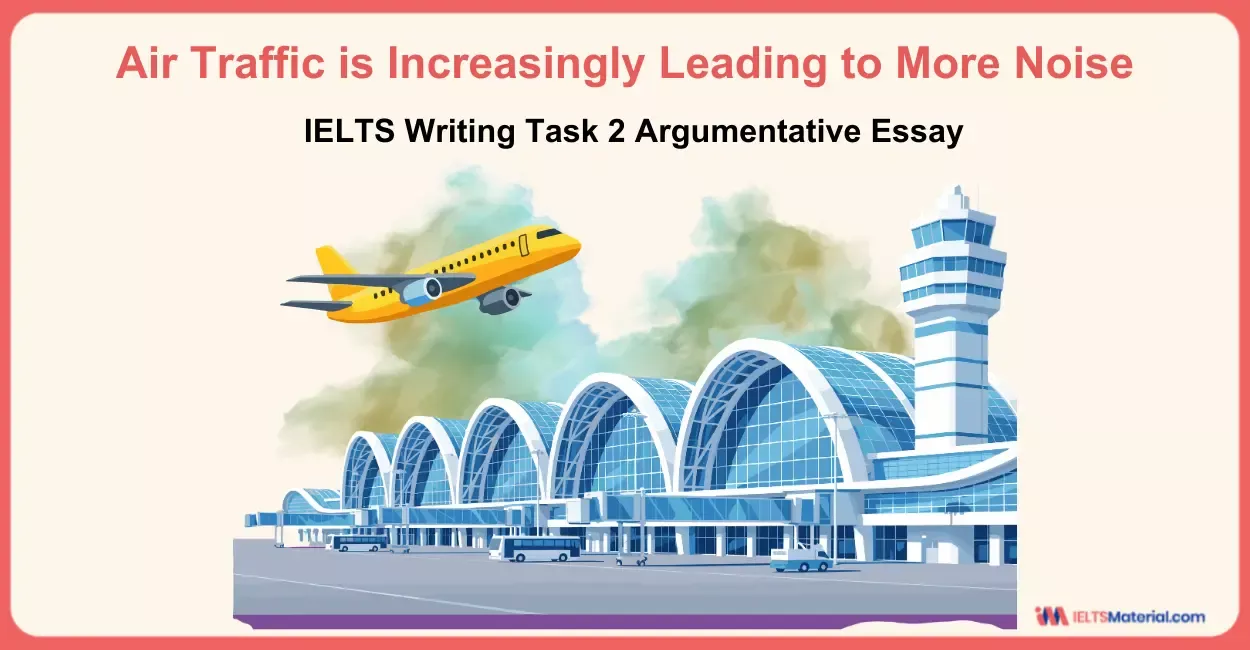
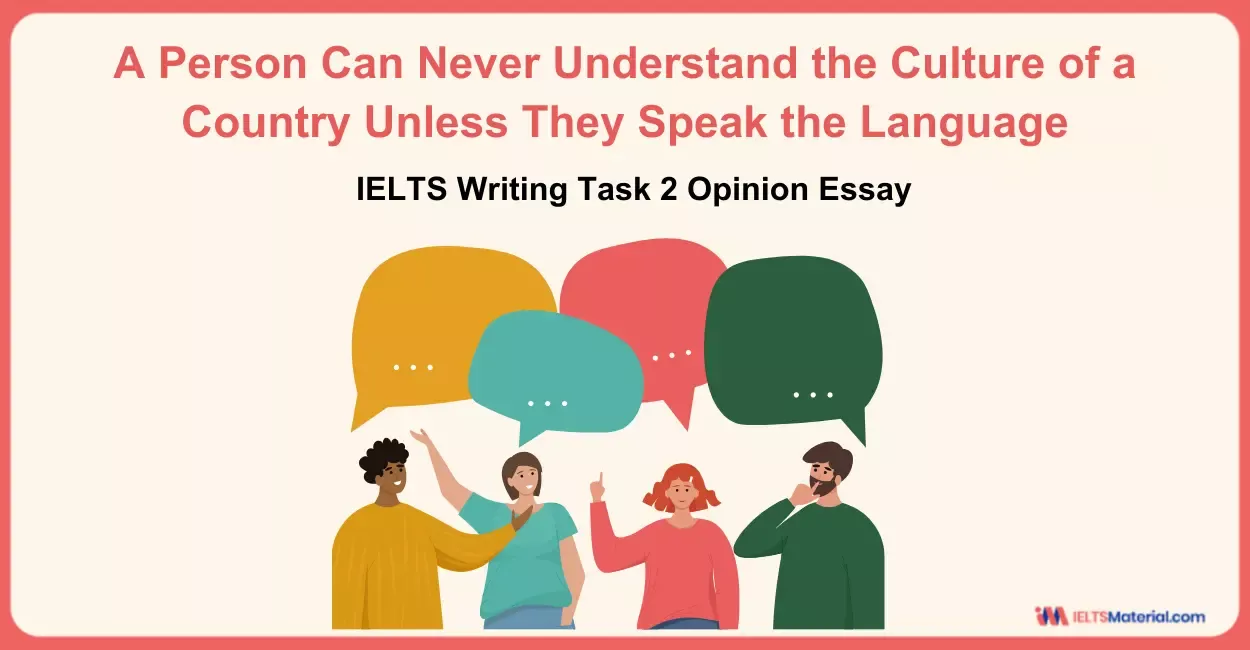

Recent Articles

Haniya Yashfeen
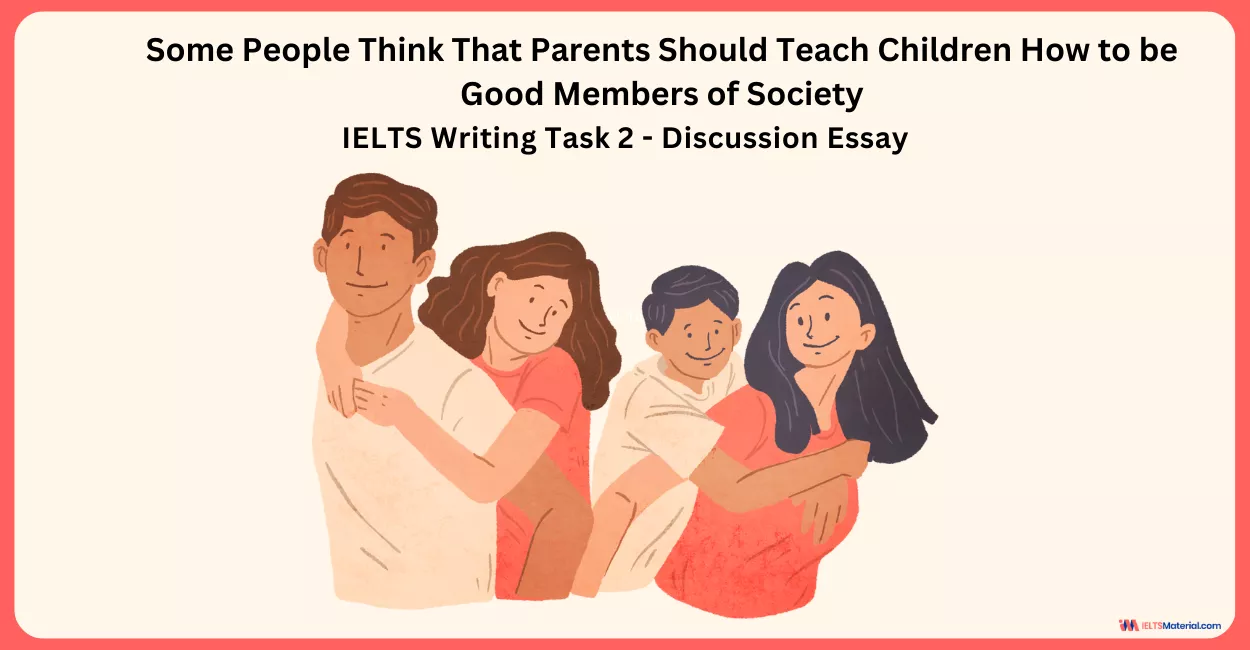

Prity Mallick

Kasturika Samanta
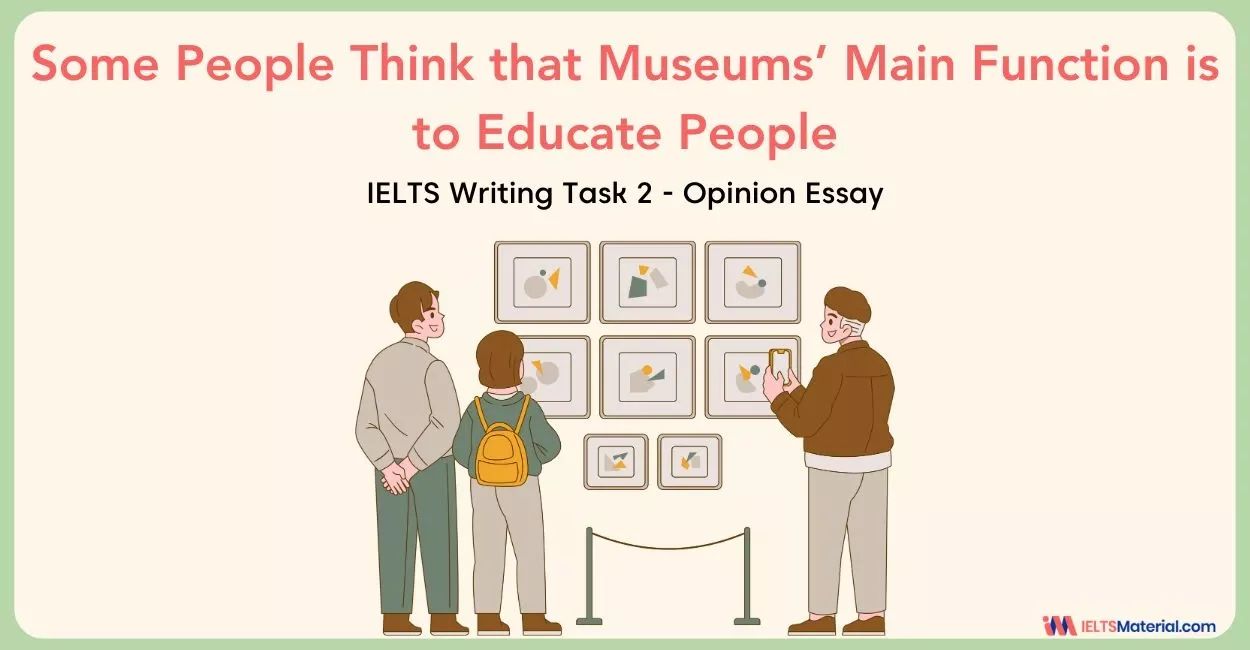

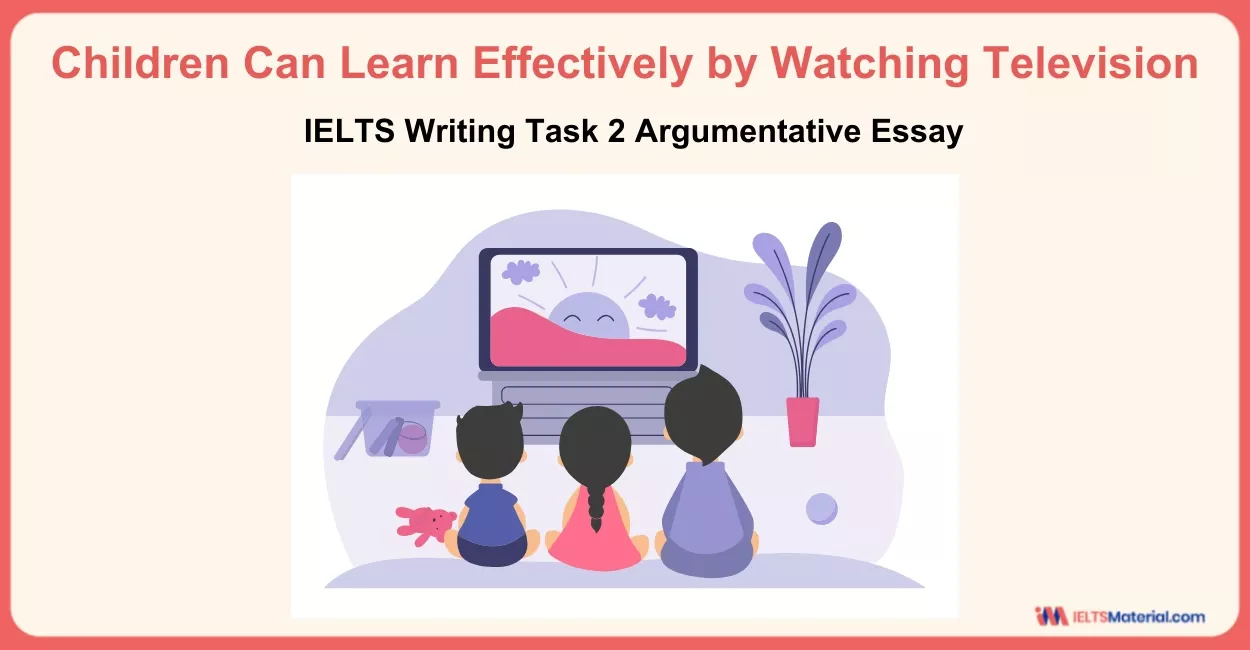


Post your Comments